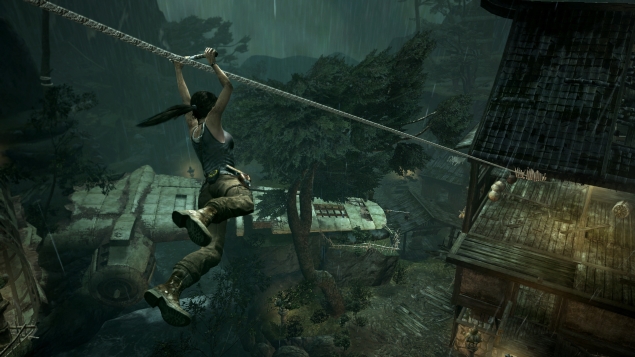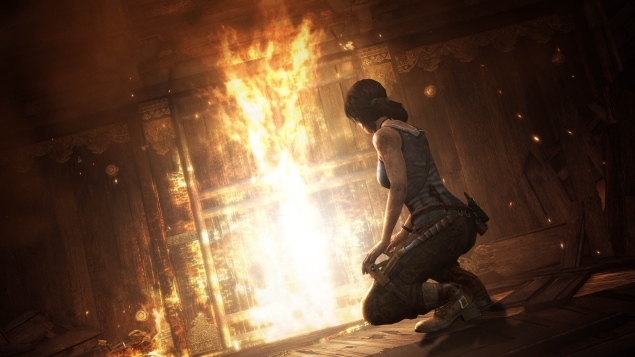The Daily Rundown's Chuck Todd takes a "deep dive" look into the meteor that hit Russia and why NASA did not have earlier notice of its coming. Rep. Rush Holt explains NASA's tracking system and discusses budget cuts to NASA and the department's future.
The meteor that blew up over the Russian city of Chelyabinsk 11 days ago has provided a new focus for the effort to establish an international asteroid warning system, one of NASA's top experts on the issue says.
Lindley Johnson, the executive for the Near Earth Object Observation Program at NASA Headquarters in Washington, said that the Feb. 15 impact is certain to become "by far the best-documented meteor and meteorite in history" — but at the time, he and his colleagues could hardly believe it was happening.
"Our first reaction was, 'This can't be. ... This must be some test of a missile that's gone awry,'" Johnson told NBC News.
The Chelyabinsk meteor exploded at an estimated altitude of 12 miles (20 kilometers) over the city of 1.1 million in Russia's Urals Mountains, setting off a shock wave that blew out windows, caused an estimated $33 million in property damage and injured more than 1,200 people.
It was doubly coincidental for Johnson and his colleagues: The meteor was thought to have been caused by the breakup of a 17-meter-wide (55-foot-wide), 10,000-ton asteroid that entered Earth's atmosphere and released the equivalent of 500 kilotons of TNT in explosive energy. All this happened just hours before a 45-meter-wide (150-foot-wide) asteroid, capable of setting off a city-killing blast, passed within 17,200 miles (27,680 kilometers) of our planet. Adding to that coincidence, researchers from around the world were gathered in Vienna for talks aimed at moving forward with an international network to deal with ... asteroid threats!
The spectacle in Russia "certainly brought renewed interest to our efforts here," said Johnson, a leader of NASA's delegation to the Vienna talks.
He said the recommendations from the researchers were "well-received" and are moving up the ladder to the next phase in a U.N.-led process for addressing outer-space threats. An action plan could be considered by the U.N. Committee on the Peaceful Uses of Outer Space during its next meeting in Vienna in June.
Johnson summarized the three main points of the recommendations:
- Set up an international asteroid warning network, or IAWN, supported with existing detection assets but incorporating additional contributions. "The basis of such a network already exists," Johnson said, thanks to NASA, the European Space Agency, the International Astronomical Union's Minor Planet Center and the NEODyS asteroid-tracking center at the University of Pisa in Italy. NASA also has partnered with the U.S. Air Force to share tracking data about near-Earth objects. Just this week, a $25 million Canadian-built satellite known as NEOSSat was launched to look for small asteroids in Earth-threatening orbits.
- Bring the world's space agencies together in a new working group called the Space Mission Planning and Advisory Group — also known as SMPAG (pronounced like "Same Page"). The group's purpose, Johnson said, would be to "get all the agencies on the 'same page' as far as assessing what capabilities could be brought to bear should there be a threatening asteroid detected."
- Put asteroid experts in contact with countries around the world, to advise disaster response agencies about the nature of a potential impact event — that is, the area expected to be affected, the potential effects and the scale of the evacuation if necessary. "It's an offshoot of the warning network," Johnson said. If the asteroid behind the Russian meteor had been detected in advance, for example, the expert network might have advised emergency workers about the potential for a midair blast and the resulting shock wave (although Johnson said he was "surprised" by the shock wave's effect).
Until last year, NASA spent about $4 million a year to track near-Earth objects, or NEOs, and Johnson said the program "has accomplished quite a bit in the relatively short time that it's been in existence." About 95 percent of the potentially threatening asteroids bigger than a kilometer (half-mile) wide have been detected. However, now NASA is working on charting the asteroids down to a width of 100 meters (330 feet). To fund that more difficult task, the annual funding level for NEO research was raised to $20 million a year.
NASA is using that money to beef up its capabilities for spotting smaller asteroids, through programs such as the Asteroid Terrestrial-impact Last Alert System, or ATLAS, which is due to get $5 million over the next five years. Less than a million dollars a year is going toward studies aimed at figuring out what to do if a threatening asteroid is found, Johnson said. After all, you have to identify the risky rocks before you can do anything about them. The potential strategies range from diverting it gently with the aid of gravity tractors or space paintball guns, to blasting it with nukes, Bruce Willis-style.
"It really depends on the scenario that we'd be faced with," Johnson said. "It depends on how big the object is. It depends on how long we have to do something about it. And if we do the search-and-detection job right, we will find a potential hazard many years if not decades before it becomes an immediate threat. There may be technologies available at that time that we never thought about. I don't get too worked up about trying to find an immediate technology that we've got to have right now to do that. Our focus is to find them as early as we can, and have the maximum amount of time to do something about it."
Update for 7:30 p.m. ET Feb. 26: Looking for a practical tip? The large majority of the people injured by the meteor blast were hurt by flying glass, which led Johnson to give this advice during a Vienna news conference: "When you see a white flash and a large trail in the sky, it's probably not a good time to stand at the window and look at it, because it may be a blast coming."
Update for 8:15 p.m. ET Feb. 26: As reported in Technology Review's Physics arXiv Blog, Colombian researchers used video from dashboard cameras and other sources to reconstruct the orbital path of the Russian meteor — and they classified it as an Apollo asteroid, a type of space rock whose path crosses Earth's orbit. That's consistent with NASA's analysis, which said the asteroid traced an orbit that ranged between the main asteroid belt and the region of outer space inside Earth's orbit.
"The preliminary orbit indicates it takes about 2.1 years to go around the sun once ... so this thing was out at its farthest distance from the sun roughly a year ago," Bill Cooke, head of the Meteoroid Environments Office at NASA's Marshall Space Flight Center, told reporters during a Feb. 15 teleconference.
The space rock was on its way back out toward the main asteroid belt, coming from Earth's sunward side, when it entered the atmosphere and blew up. That's why it wasn't possible to predict the impact in advance: At a width of 55 feet, the object was too small to show up in traditional sky surveys, and it would have been lost in the sun's glare during its final approach.
So far, searchers have recovered just bits and pieces of the shattered space boulder. "The largest I've heard is a kilogram and a half," or about three pounds, Johnson told NBC News.
NASA budgeted $20 million dollars last year to look for objects that may hit the earth, but some scientists say more money should be spent on detection and ways to avoid a possible collision. NBC's Michelle Franzen reports.

Yekaterina Pustynnikova / Chelyabinsk.ru via AP
Click through scenes from Russia's Chelyabinsk region, where a huge meteor fireball set off alarms, injured hundreds of people and caused a factory roof to collapse.
More about asteroids:
Alan Boyle is NBCNews.com's science editor. Connect with the Cosmic Log community by "liking" the log's Facebook page, following @b0yle on Twitter and adding the Cosmic Log page to your Google+ presence. To keep up with Cosmic Log as well as NBCNews.com's other stories about science and space, sign up for the Tech & Science newsletter, delivered to your email in-box every weekday. You can also check out "The Case for Pluto," my book about the controversial dwarf planet and the search for new worlds.
This story was originally published on Tue Feb 26, 2013 6:23 PM EST





